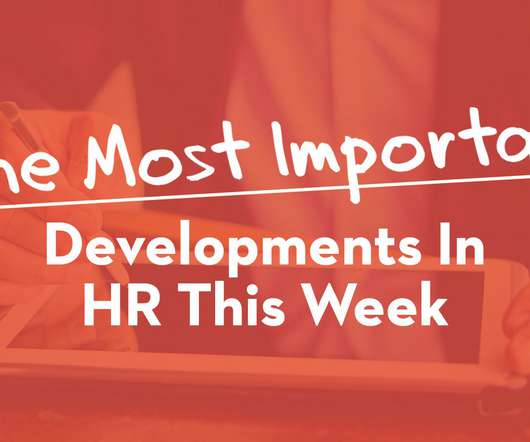Assessing Values in Online Technology Part 4
HR Examiner
NOVEMBER 17, 2020
Knowledge Management. Talent Management. Training VR. Recruiting (Workforce). Capacity (jane.ai). Cappfinity (formerly Capp and Co). Recruiting (Assessment). Full Spectrum. 1,001-5,000. Practioner. ClearCompany. Recuiting (Assessment). Headhunter Group. Hiredscore. Recruiting. Recruiting. Recruiting (Assessment).
















Let's personalize your content